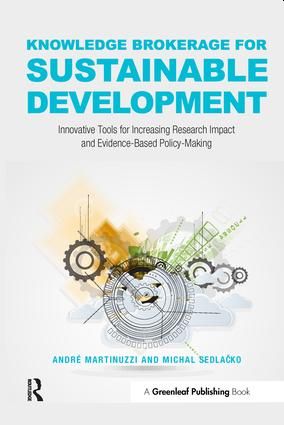Expediting the Transfer of European Water Research – WaterDiss2.0 Consensus Conference
- Event
- Date
-
-
- Location
- Berlin, Germany
How to spread innovation effectively? How can we bridge the gap between researchers and the target audience, thereby increasing the use of research results? How can we maximize the use and uptake of research results through dissemination? These were among the questions discussed at the WaterDiss2.0 Consensus Conference: Expediting the Transfer of European Water Research, organized as part of the WaterDiss2.0 project on Dissemination and uptake of FP water research results.
In the field of water, practitioners and researchers share a common interest in catalyzing the transfer and use of EU-funded water research outputs to help meet policy aims set out in the Water Framework Directive. The WaterDiss2.0 Consensus Conference provided a platform for discussion and a creative working environment for 26 participants, including practitioners and researchers as well as key mediators with experience in dissemination and innovation of water management, policies and technologies. The conference, under the topic "Expediting the Transfer of European Water Research" took place in Berlin on 3-4 November 2011 and aimed to:
- Introduce, discuss and validate the approach of the project consortium to communicating results of EU-funded water research and to promote their uptake in the water sector
- Emphasize how the WaterDiss2.0 process can be a normal component of the dissemination step of every research project
- Serve as a platform to build and strengthen networks of water professionals
The Conference was introduced by Gilles Neveu, Manager at the Innovation and Development Direction (Office International de l'Eau) and Gaelle Nion, the project coordinator. Further presentations were given by Darla Nickel (Ecologic Institute) on the analysis of dissemination strategies of past projects and how to further dissemination of project results and Kerry Thomas (Environmental Sustainability Knowledge Transfer Network) on the activities and events planned by WaterDiss2.0 for project representatives. Gaelle Nion (Office International de l'Eau) presented on the tools that WaterDiss2.0 can offer, such as the EU Water Community, which is a communication platform connecting scientists and policy-makers to improve water management in Europe, open to the public. To discuss Best Practice Dissemination Strategies two FP project leaders were invited to present their successful approach within their respective project.
- The FP6 project AMEDEUS (Accelerate Membrane Development for Urban Sewage Purification) owed its success mainly to an ambitious and well-planned communication strategy addressing needs both in the short and in the long term as well as promising prerequisites, such as a booming technology and the participation in a cluster, which coordinated a collective effort for membrane technology development.
- The results and recommendations of the FP6 project BRIDGE (Developing a Common Methodology for the Evaluation of Groundwater Environmental Quality) were used in the CIS (Common Implementation Strategy) guidance document. This was due to the key success factors of the project’s dissemination strategy, including the role played by the diverse project team and the strong involvement of some project partners in the national implementation of the WFD.
The presentations held at the workshop are available online.
In the second half of the day, a World Café provided the stage for interactive discussions, offering an informal and creative environment in which participants discussed possibilities to improve dissemination and to find solutions to overcome existing barriers. Collective knowledge and original input surfaced from this sharing of insights. The discussions were structured into four small round-tables, each of which addressed one of the following questions:
- How can local governments and utilities benefit from the latest results of research?
- Where do scientists most need or desire assistance with dissemination and uptake of project results?
- How can Web2.0 tools best be used to improve dissemination?
- How much flexibility does a successful dissemination strategy require?
The workshop conclusions identified several barriers to dissemination and uptake and provided ideas for improvement. The difficulty in reaching target audiences was repeatedly mentioned, which lays in the particularity of each project's outputs and its target groups. No one-size-fits-all approach exists and communication messages and dissemination strategies have to be developed individually. While some projects reached out to the use of web tools, many remain unfamiliar with it or would need further assistance to maximise the benefits. Seizing the right moment for transfer of research results as well using appropriate language are prominent factors of success in dissemination. Communication is a skill, and expertise can be gained through trainings and assistance that the WaterDiss2.0 project can provide. A summary of the discussions and the workshop conclusions is available online.
The WaterDiss2.0 Consensus Conference was organized by the Ecologic Institute with input from the consortium partners and the project lead. The Ecologic Institute is in charge of the initial project phase, with a focus on assessing the needs and requirements for improving the dissemination and uptake of research results. After completion of the first project year, the WaterDiss2.0 consortium will continue to speed up the transfer of FP water research results to intended users with the support of events designed for specific audiences and by engaging scientists, policy makers and water managers. For a selection of 60 FP6 and FP7 projects, the WaterDiss2.0 consortium is now looking to analyse the potential futures of the research outputs in close collaboration with the research teams and to design and help realise dissemination strategies for each individual project.
Further links:
- Ecologic Institute Project: Dissemination and uptake of FP water research results (WaterDiss2.0)
- WaterDiss2.0 project website
- The WaterDiss2.0 Consensus Conference



